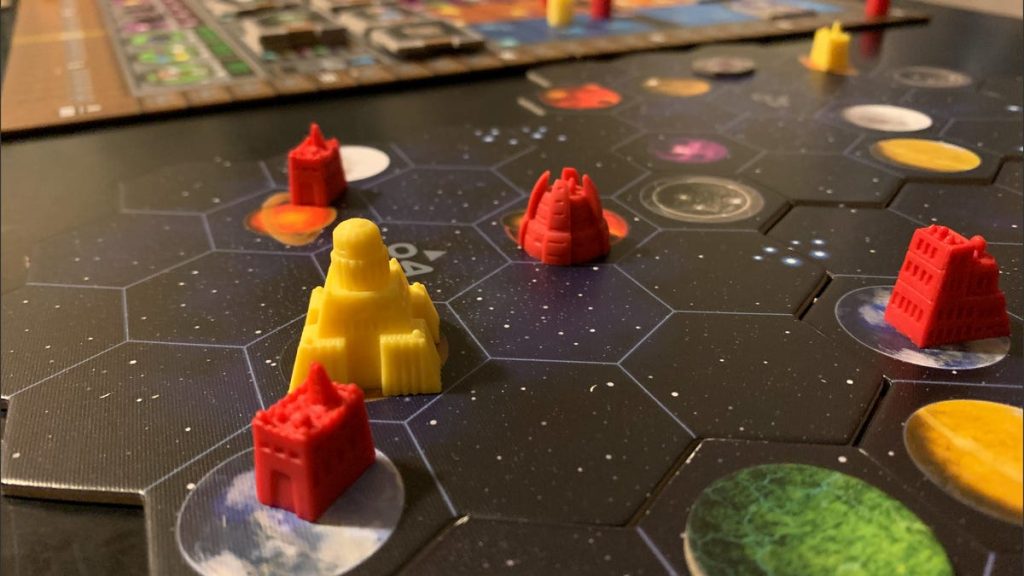CNET’s team of experts, with over 25 years of experience, regularly reviews new products and services, including a wide array of strategy board games. Strategy board games, distinguished from other games by the crucial role of player decision-making in determining the outcome, offer a stimulating alternative to traditional family game nights. These games challenge players to think critically and strategically, fostering engaging and rewarding gameplay experiences. This curated selection of top strategy board games caters to diverse preferences, presenting ideal options for both seasoned gamers and newcomers, as well as providing excellent gift ideas.
While defining the “best” strategy board game is inherently subjective due to the vast array of options available, Windward emerges as a strong contender. This captivating game, relatively new to the scene, has quickly become a favorite among board game enthusiasts. Windward presents players with the exciting challenge of captaining skyfaring boats in the pursuit of colossal space whales known as Crestors. The game strikes a balance between strategic depth and accessibility, offering a gentle learning curve that makes it an ideal introductory choice for those new to strategy games. The game’s visually appealing board and components further enhance its immersive quality.
The realm of strategy board games encompasses a diverse range of subgenres, often categorized by their core gameplay mechanics. Wargames center around simulated conflicts, American-style games prioritize direct player interaction with elements of chance, while Eurogames emphasize meticulous planning and resource management, generally minimizing luck-based elements. The defining characteristic of this genre remains the paramount importance of strategic thinking, where players’ ability to outmaneuver opponents and make calculated decisions is the key to success. The ideal strategy board game blends engaging gameplay with high replayability, ensuring continued enjoyment even in defeat.
Among the top contenders in the strategy board game arena, several games stand out for their unique gameplay mechanics and captivating themes. Star Wars: Shatterpoint immerses players in the thrilling world of Star Wars, featuring squad-based combat with customizable miniature figures. Small World invites players to conquer a limited game board, employing fantastical creatures with unique abilities in a constant struggle for dominance. Twilight Struggle plunges players into the tense atmosphere of the Cold War, challenging them to navigate geopolitical complexities and avoid the catastrophic consequences of nuclear war. Agricola, a classic worker placement game, tasks players with managing a farm and family through challenging seasons, demanding careful resource allocation and planning.
For those seeking a truly immersive and complex experience, Food Chain Magnate offers an intricate simulation of restaurant management, requiring players to navigate hiring, menu design, advertising, and financial management. Star Wars: Imperial Assault provides a thrilling tactical combat experience set in the Star Wars universe, pitting Imperial forces against Rebel players. Rising Sun transports players to feudal Japan, where they must strategically manage their clans, forge alliances, and engage in battles for territorial control. The Castles of Burgundy offers a shorter, yet equally engaging, experience centered around dice rolling and tile placement, allowing players to build their own medieval principalities. Gaia Project challenges players to colonize a galaxy as one of several unique alien races, demanding strategic resource management, technological advancement, and territorial expansion.
While games like Settlers of Catan and Carcassonne serve as excellent introductions to the genre, they often represent a stepping stone for players who quickly progress to more intricate and demanding strategy games. The evaluation process for board games involves a range of criteria, including component quality, clarity of instructions, learning curve for different age groups, playtime duration, enjoyment level, and replayability. Testing also incorporates feedback from diverse players to ensure a balanced assessment, considering varying preferences for game complexity and length.

